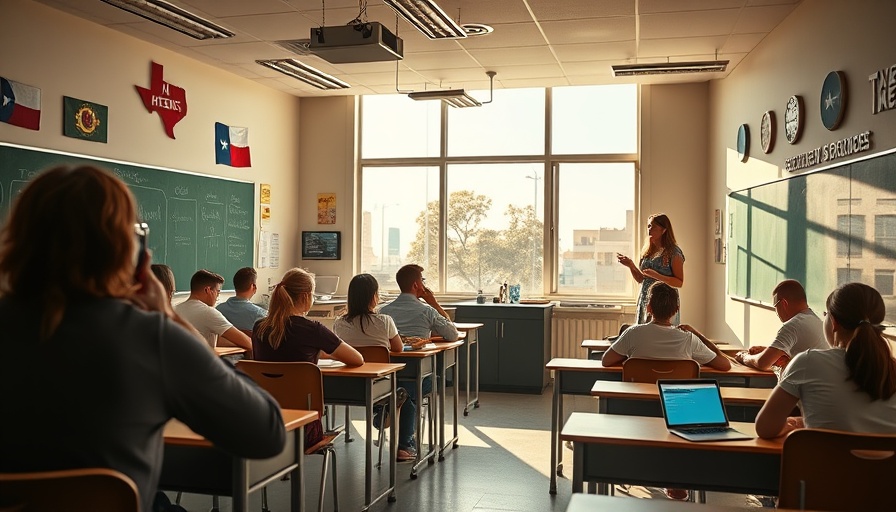
New Legislation in Texas Schools: What You Need to Know
In a notable shift, Texas has enacted several new laws that affect the daily operations of public schools across the state. Among these are policies that address the use of cellphones and regulations surrounding library materials. These changes have prompted a mixed reaction from educators, parents, and students alike, drawing attention to the ongoing discussion about the appropriateness of technology in educational settings.
A Closer Look at the Cellphone Ban
The cellphone ban is one of the most talked-about measures. Effective from the start of the new school year, it mandates that students keep their phones stored away during school hours. Proponents argue that this policy will reduce distractions in the classroom, allowing students to focus on their lessons. Critics, however, have raised concerns about the ban's impact on communication and students' ability to connect with their families.
Library Materials: A New Standard?
In addition to the cellphone regulations, new guidelines around library materials are set to take effect. Schools will now face stricter procedures for how books and resources can be made available to students. These standards are particularly aimed at filtering content deemed inappropriate by certain state lawmakers. This effort reflects a growing national trend toward the reevaluation of educational materials, leading to debates over censorship versus educational freedom in schools.
Historical Context: The Evolution of Educational Policies
This surge in legislative change regarding educational policies is not new but rather aligns with a broader historical context where states prioritize educational content and student behavior. Over recent years, similar conversations have emerged in various states about the roles of technology and the accessibility of diverse literature in schools. As education continues to evolve, so do the laws that govern it, prompting communities to reflect on what these changes mean for future generations.
Varied Perspectives: Voices from the Community
The community is divided on these new laws. Supporters argue that limiting cell phone use will encourage face-to-face interactions and improve classroom engagement. However, several parents voice concerns that these rules may compromise students' safety and connectivity outside of school hours. Additionally, many educators fear that restricting library materials could hinder students' learning experiences, limiting their exposure to diverse ideas and viewpoints.
Future Insights: What Lies Ahead for Texas Schools?
As these laws take effect, the immediate future will likely involve monitoring their impact closely. School boards and educators will need to navigate these changes carefully and gauge student response. Perhaps in future sessions, lawmakers might address the challenges that arise and consider adjustments based on community feedback, driving a more balanced approach that embraces safety without stifling exploration.
Actionable Insights and Community Involvement
It is vital for parents, educators, and community members to engage in conversations about these legislative changes. Attending school board meetings, participating in forums, and voicing opinions can help shape future educational policies. Understanding the implications of these laws can bolster community action towards maintaining a safe yet enriching environment in schools.
As Texas schools implement these laws, ongoing dialogue between all stakeholders—including students—will be crucial. Encouraging open-minded discussions will pave the way for future legislative measures that consider the diverse needs of students and educators alike.
As you explore the implications of these substantial changes in Texas education, consider how digital literacy and diverse reading materials can coexist to foster a productive learning environment. Join conversations, voice your opinions, and contribute to making informed decisions as these new laws take effect across the state.
 Add Element
Add Element  Add Row
Add Row 



Write A Comment